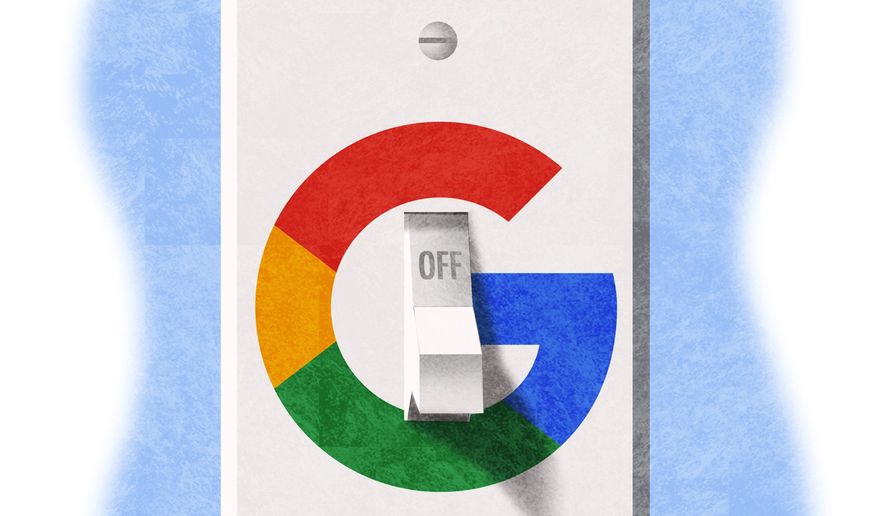OPINION:
The Washington Times this week published an editorial noting that regulating electricity at the regional level — without any meaningful accountability to voters — may not lead to the best outcomes for ratepayers, the economy or good government.
At the same time, there are those who want everyone in the United States to be subject to such regulatory strictures.
Why?
The obvious answer is that those who stand to make money from such regimes would like to expand them, irrespective of any effects on consumers. Google immediately comes to mind. The arrangements it has made with regional markets (mostly out of sight of other ratepayers) are worth billions of dollars to the company.
Google has made it clear that it wants to disrupt places where regulators of electricity are tied to voters in some material way. The company’s road map for a new electricity system is direct: It wants to expand and integrate regional regulatory regimes everywhere. It wants “all areas of the country to transition to [regional regulatory regimes],” which means, as a practical matter, nationalization of the electricity market overseen by the federal government.
Why would Google care about how electricity is regulated? Obviously, Google uses a lot of electricity, so it’s a large consumer. But so are a lot of other companies. For the most part, they aren’t banging around the electricity space with well-developed theories about how electricity should be generated and regulated.
The more likely answer is that our friends in Mountain View, California, want access to the data on the tens of millions of electricity consumers. Electricity is one of the few commodities that just about everyone in the United States uses. For a company whose business model is all about turning data into cash, access to when and how and how much electricity households and businesses use could be pretty valuable.
It is probably also worth noting that the value of controlling regional regulatory authorities will increase as larger portions of the economy come to depend on electricity.
Perhaps it is a coincidence that in the last few years, Google has shipped a bunch of cash to groups on both the left and right, hired advocates, sent letters (through its trade associations) to members of Congress, and joined regional regulators in the Southwest Power Pool and the Midcontinent Independent System Operator.
Unfortunately for the rest of us, Google’s rapacity might not produce optimal results. Google’s current target — the southeastern United States, which features mostly state-based regulation — has electricity rates below the national average and among the best reliability in the U.S. Also — and this seems material — the largest carbon-free source of electricity in the United States is nuclear power. The Southeast has more of that than most other regions.
As Mark Nelson, managing director of Radiant Energy Group, summed up concerns about the ubiquitous presence and influence of Google in a New York Times article in December: “What’s fastest and cheapest for Google is not necessarily best for society long term.”
In 1935, Congress passed the Public Utility Holding Company Act, which broke up the big, multistate holding companies that essentially controlled much of the country’s electricity and that had neutered state regulation and turned local utilities into subsidiaries of Samuel Insull’s financial empire. The 1935 law was designed specifically to remedy the loss of local control, the complete absence of genuine regulation, and the concentration of capital and decision-making in a small and unaccountable coterie of businessmen.
It would be beyond discouraging if the efforts of the last 30 years to improve competition and reduce regulation in the electricity industry have led us right back to the world before the 1935 act, except this time with companies like Google playing the role of Samuel Insull.
• Michael McKenna, a columnist for The Washington Times, co-hosts “The Unregulated Podcast.” He was most recently a deputy assistant to the president and deputy director of the Office of Legislative Affairs at the White House.




Please read our comment policy before commenting.